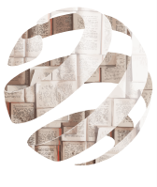
More than skills: What can approaches to Digital Literacies learn from Academic Literacies?
Abstract
Defining digital literacies is challenging because ‘literacies’ has been used in different ways, shifting from its association with the critical engagement with texts to encompass broader definitions relating to skills-based agendas (Lea, 2011). Support for the development of digital literacies in citizens, students and lecturers has over the last decade become a popular debate, with hundreds of digital literacy frameworks developing (for review see All Aboard!, 2015; and Hoechsmann, 2015). Yet, treatment of digital literacies as transferable, discrete sets of skills may not do justice to anyone. The academic literacies approach has developed from similar challenges around teaching text based skills (Lea and Street, 1998; Lea and Street, 2006; Lillis, 2006). Their consideration of the nuanced and complex practices around texts offers a sociological insight into the development of digital literacies. In this article, we contrast an academic literacies approach with JISC’s current thinking around digital capabilities, followed by a discussion of the parallels between Lea and Street’s (1998, 2006) academic literacies model and Bennett’s Digital Practitioner Framework (Bennett, 2014; Sharpe, 2010).
Keywords
Full Text:
Position Paper - PDFReferences
All Aboard! (2015). All Aboard! Towards a National digital skills framework for Irish higher education: Review and comparison of existing frameworks and models. Ireland.
Belshaw, D. (2011). What is digital literacy? A Pragmatic investigation. EdD Thesis, Durham: University of Durham.
Bennett, L. (2014). Learning from the early adopters: developing the digital practitioner. Research in Learning Technology, 22, 1-13.
Brown, M. (2017). Exploring the Underbelly of Digital Literacies. Retrieved 4 August 2017, 2017, from https://oeb-insights.com/exploring-the-underbelly-of-digital-literacies/
Hoechsmann, M., & DeWaard, H. (2015). Mapping Digital literacy policy and practice in the Canadian education landscape: MediaSmarts. Ottowa.
JISC. (2017). Organisational digital capability in context. Retrieved 4 August 2017, from https://www.jisc.ac.uk/guides/developing-organisational-approaches-to-digital-capability/organisational-digital-capability-in-context
Kirkwood, A. (2014). Teaching and learning with technology in higher education: blended and distance education needs ‘joined-up thinking’ rather than technological determinism. Open Learning: The Journal of Open, Distance and e-Learning (April 2015), 1-16. doi: 10.1080/02680513.2015.1009884
Kirkwood, A., & Price, L. (2013). Missing: evidence of a scholarly approach to teaching and learning with technology in higher education. Teaching in Higher Education, 18(3), 327-337. doi: 10.1080/13562517.2013.773419
Lea, M. (2013). Reclaiming literacies: competing textual practices in a digital higher education. Teaching in Higher Education, 18(1), 106-118. doi: 10.1080/13562517.2012.756465
Lea, M., & Jones, S. (2011). Digital literacies in higher education: exploring textual and technological practice. Studies in Higher Education, 36(4), 377-393. doi: 10.1080/03075071003664021
Lea, M., & Street, B. (1998). Student writing in higher education: An academic literacies approach. Studies in Higher Education, 23(2), 157-172. doi: 10.1080/03075079812331380364
Lea, M., & Street, B. (2006). The "Academic Literacies" Model: Theory and Applications. Theory into Practice, 45(4), 346-351. doi: http://dx.doi.org/10.1207/s15430421tip4504_11
Lillis, T. (2006). Moving towards an academic literacies pedagogy: ‘dialogues of participation’. In L. Ganobcsik-Williams (Ed.), Academic Writing in Britain: theories and practices of an emerging field. Basingstoke: Palgrave.
Mann, S. (2008). Study, Power and the University: The Institution and its Effects on Learning. Maidenhead: McGraw-Hill Education.
Sharpe, R., & Beetham, H. (2010). Understanding Students' uses of Technology for Learning: Towards Creative Appropriation. In R. B. Sharpe, Helen (Ed.), Rethinking Learning for a Digital Age: How Learners are Shaping their Own Experiences (pp. 85-99): Routledge.
Street, B. V. (1984). Literacy in theory and practice. Cambridge: Cambridge University Press.
DOI: https://doi.org/10.29311/jlthe.v1i1.856
Refbacks
- There are currently no refbacks.
Copyright (c) 2018 Stephen Walker, Alexandra Judith Frances Patel

This work is licensed under a Creative Commons Attribution-ShareAlike 4.0 International License.



